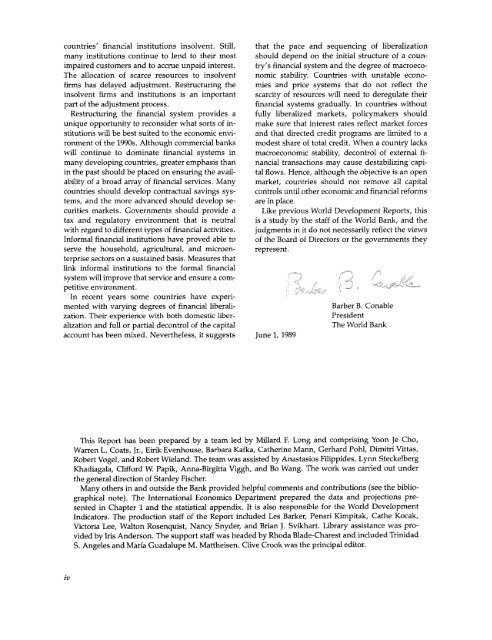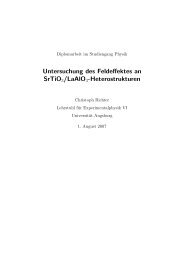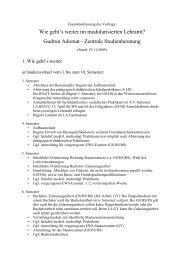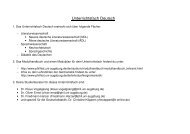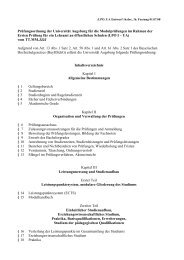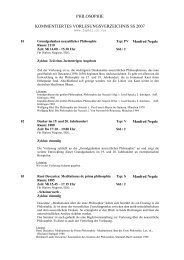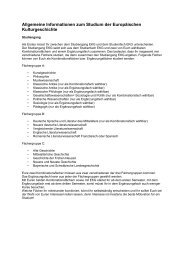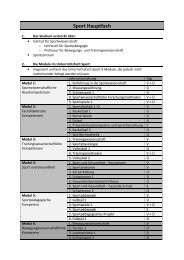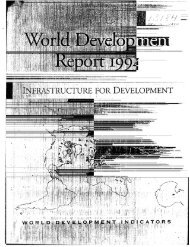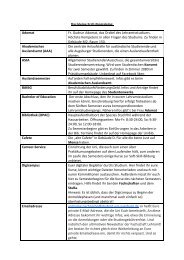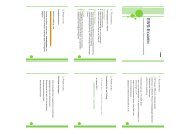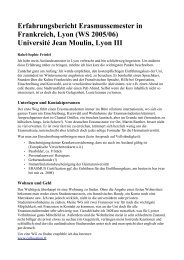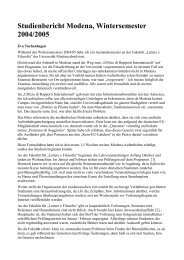Financial systems and development
Financial systems and development
Financial systems and development
Create successful ePaper yourself
Turn your PDF publications into a flip-book with our unique Google optimized e-Paper software.
countries' financial institutions insolvent. Still, that the pace <strong>and</strong> sequencing of liberalization<br />
many institutions continue to lend to their most should depend on the initial structure of a counimpaired<br />
customers <strong>and</strong> to accrue unpaid interest. try's financial system <strong>and</strong> the degree of macroeco-<br />
The allocation of scarce resources to insolvent nomic stability. Countries with unstable econofirms<br />
has delayed adjustment. Restructuring the mies <strong>and</strong> price <strong>systems</strong> that do not reflect the<br />
insolvent firms <strong>and</strong> institutions is an important scarcity of resources will need to deregulate their<br />
part of the adjustment process.<br />
financial <strong>systems</strong> gradually. In countries without<br />
Restructuring the financial system provides a fully liberalized markets, policymakers should<br />
unique opportunity to reconsider what sorts of in- make sure that interest rates reflect market forces<br />
stitutions will be best suited to the economic envi- <strong>and</strong> that directed credit programs are limited to a<br />
ronment of the 1990s. Although commercial banks modest share of total credit. When a country lacks<br />
will continue to dominate financial <strong>systems</strong> in macroeconomic stability, decontrol of external fimany<br />
developing countries, greater emphasis than nancial transactions may cause destabilizing capiin<br />
the past should be placed on ensuring the avail- tal flows. Hence, although the objective is an open<br />
ability of a broad array of financial services. Many market, countries should not remove all capital<br />
countries should develop contractual savings sys- controls until other economic <strong>and</strong> financial reforms<br />
tems, <strong>and</strong> the more advanced should develop se- are in place.<br />
curities markets. Governments should provide a Like previous World Development Reports, this<br />
tax <strong>and</strong> regulatory environment that is neutral is a study by the staff of the World Bank, <strong>and</strong> the<br />
with regard to different types of financial activities. judgments in it do not necessarily reflect the views<br />
Informal financial institutions have proved able to of the Board of Directors or the governments they<br />
serve the household, agricultural, <strong>and</strong> microen- represent.<br />
terprise sectors on a sustained basis. Measures that<br />
link informal institutions to the formal financial<br />
system will improve that service <strong>and</strong> ensure a competitive<br />
environment.<br />
In recent years some countries have experimented<br />
with varying degrees of financial liberali-<br />
Barber B. Conable<br />
zation. Their experience with both domestic liber-<br />
President<br />
alization <strong>and</strong> full or partial decontrol of the capital<br />
The World Bank<br />
account has been mixed. Nevertheless, it suggests June 1, 1989<br />
This Report has been prepared by a team led by Millard F. Long <strong>and</strong> comprising Yoon Je Cho,<br />
Warren L. Coats, Jr., Eirik Evenhouse, Barbara Kafka, Catherine Mann, Gerhard Pohl, Dimitri Vittas,<br />
Robert Vogel, <strong>and</strong> Robert Wiel<strong>and</strong>. The team was assisted by Anastasios Filippides, Lynn Steckelberg<br />
Khadiagala, Clifford W Papik, Anna-Birgitta Viggh, <strong>and</strong> Bo Wang. The work was carried out under<br />
the general direction of Stanley Fischer.<br />
Many others in <strong>and</strong> outside the Bank provided helpful comments <strong>and</strong> contributions (see the bibliographical<br />
note). The International Economics Department prepared the data <strong>and</strong> projections presented<br />
in Chapter 1 <strong>and</strong> the statistical appendix. It is also responsible for the World Development<br />
Indicators. The production staff of the Report included Les Barker, Pensri Kimpitak, Cathe Kocak,<br />
Victoria Lee, Walton Rosenquist, Nancy Snyder, <strong>and</strong> Brian J. Svikhart. Library assistance was provided<br />
by Iris Anderson. The support staff was headed by Rhoda Blade-Charest <strong>and</strong> included Trinidad<br />
S. Angeles <strong>and</strong> Maria Guadalupe M. Mattheisen. Clive Crook was the principal editor.<br />
iv


